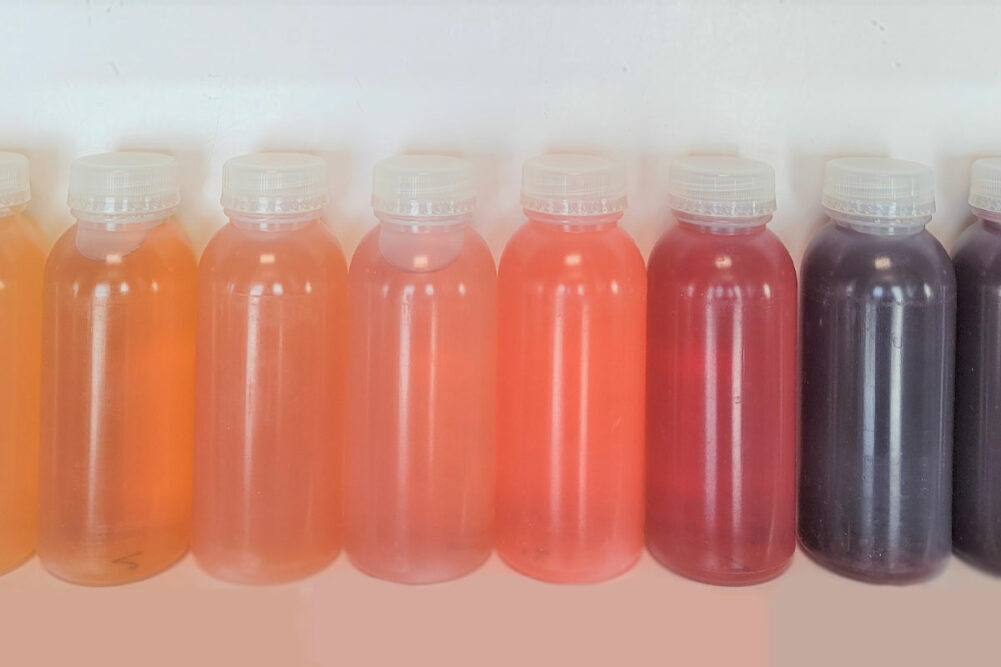TRAVERSE CITY, MICH.— Nearly 72% of American consumers are looking to reduce or eliminate sugars from their diets, according to the International Food Information Council’s 2022 Food and Health Survey. That’s where NewTree Fruit Co. comes in. The company was founded in 2014 by husband-and-wife Chad and Kim Anderson and inventor and founder Luc Hobson.
In 2012, around the time the company came to fruition, Mr. Hobson was contracted to develop a blackberry “super shot” with a specific level of polyphenols. As he concentrated the application, it became more viscous and the only solution was to remove the sugar. Around the same time, Mr. Anderson’s grandparents were in their early 90s and both diagnosed with diabetes, which created an “ah-ha” moment for the team to formulate better-for-you beverages with less sugar.
“Most people their age grew up drinking orange juice and apple juice every morning and the doctor said to remove it from their diets,” Ms. Anderson said.
Fruit juice has three different sugars — glucose, fructose, and sucrose. Through a patented culturing method, NewTree Fruit Company removes the sugar.
“The result is what we call a de-sugared fruit juice that has less than one gram of sugar per eight ounces,” Ms. Anderson said. “We only remove the sugars, allowing the other nutrients like vitamins, minerals, and polyphenols to shine.”
While de-sugared beverages feature less sugar they can create a dry mouthfeel, an issue the company is working to overcome.
“The de-sugaring process removes the sugar, but does not change the acid profile, so the resulting concentrate lacks sweetness and has a dry mouthfeel,” Ms. Anderson said. “Typically, we would re-sweeten with a natural plant-based sweetener and add pectin or fiber to match the experience of drinking a full sugar juice.
“The other challenge is that up until a few years ago stevia was hard to work with and often associated with a negative aftertaste. That isn’t the case now. Sweetener companies have made great strides in new formulations that result in great tasting beverages.”
The company is focused on most beverage categories but said they have had the most success in the canned cocktail and beer spaces. In the future, a goal is to reach the fruit water and fruit juice categories.
They have worked with nearly every type of fruit, from blueberry, blackberry, lemon, and lime — but Ms. Anderson said their sweet spot is in the red fruits.
“Things like cherries, blackberries, grapes, those tend to have the most antioxidants and good polyphenols that go with them,” she said.
With a processing plant in Traverse City, Mich., the company offers clients several options for business.
“We can procure the fruit juice, de-sugar it and ship it wherever the client wants,” Ms. Anderson said. “We can also promote and sell concentrated de-sugared fruit juice base as an ingredient for an array of product applications.”
While their focus is primarily on beverages, the company also has worked with other segments such as fruit preps for yogurt in smoothies, cereal, and a whole fruit solution that would be low in sugar and high in fiber.
“There’s so many opportunities for us we want to be available to the masses,” Ms. Anderson said. “But for right now we’re focused on being an ingredient for other companies.”




